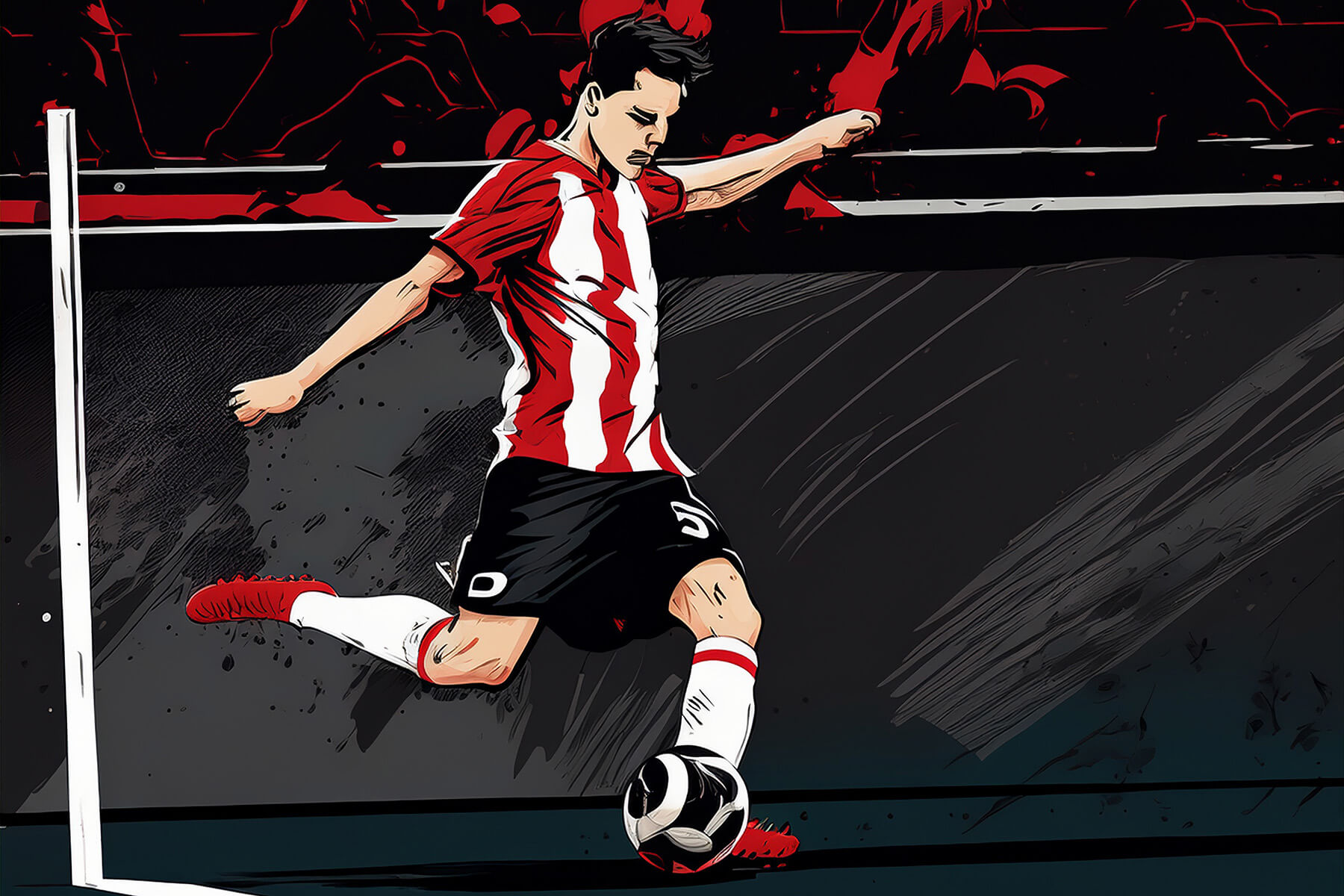About Correlation FC Goal Contributions
Here at Correlation FC, when it comes to stats, we think that more is better. Of course that's not always the case, but when it comes to goal contributions, it definitely is.
Assists
Football has historically been quite stingy with assists, with them not being officially recorded for decades after the game started. Even now, when assists are widely tracked, the awarding of an assist is unnecessarily stingy. Opta, the Premier League's official statistics provider describes an assist like this:
The final touch from a teammate, which leads to the recipient of the ball scoring a Goal. If the assist is deflected by an opposition player, it must be deemed as travelling to the Goal-scorer irrespective of the deflection. In the event of an own Goal, direct free kick Goal and direct corner Goal, an assist will not be awarded. This same rule applies to penalties unless the penalty taker chooses to pass the ball for another player to score. Source: Opta Event definitions.
"Hockey assists" are sometimes discussed as well - we prefer the simplicity of that approach:
An assist is awarded to the player or players (maximum two) who touches the puck prior to the goal scorer, provided no defender plays or possesses the puck in between. Source International Ice Hockey Federation.
That's it. Up to two assists for players who touch the puck prior to the goal, as long the a defender doesn't possess the puck. Deflections? Fine. Bounces off the referee? Fine. Bounces off the post or crossbar? Fine. Assists, assists, lots of assists. And whether an assist is a "first assist" or a "second assist" is immaterial. The player helped the team score a goal, so they're awarded an assist.
Back to football, Opta have also begun to recognise other assists as well – things like the "fantasy goal assist" and "second assist", but they are not officially recognised and not widely talked about. Their more inclusive "fantasy" model includes many of the improvements to the assist model that we would like to see – things like assists from:
- deflected passes or crosses (see Bryan Mbeumo's should-be assist on Kevin Schade's December 2024 goal against Leicester City)
- rebounds off of saves, blocked shots or woodwork (see Schade's should-be assist off the near post on Mbeumo's August 2024 goal against Southampton)
- winning a free kick or penalty that leads to a goal (see Yoane Wissa winning a penalty against Newcastle in April 2025 that led to a Mbeumo goal)
We'd go further, and also add assists for things like:
- throw ins (see Schade's throw in to Christian Norgaard against Bournemouth in March 2025)
- plays interrupted by brief moments of defensive possession (see Vitaly Janelt's pass to Wissa against Southampton in January 2025)
Over the last 10 Premier League seasons, the leading assist total has been 16.1. Over a 38 game season, that averages out to 0.42 assists per game. In the National Hockey League, the average leader over the same 10 year period has averaged 78.8 assists, or 0.96 per game. More. More than double, more.
Goals
Goals are a bit more straightforward, however, be believe that the own goal as a statistic is unhelpful. Many (most?) are the result of back luck rather than poor skill, so they can be seen as a punishment for the defender or goalkeeper, while also punishing the would-be scorer. We don't award own goals and instead award goals (and possibly assists) as normal (for us) on the play leading up to the own goal. This goal against Manchester United in May 2025 would be attributed to Mikkel Damsgaard with an assist to Michael Kayode rather than an unassisted own goal for Luke Shaw.
In summary
We believe that our approach, while different, offers no downside. We don't see any losers here. It's a low scoring game that requires great skill and often a bit of luck to get the ball in the net. Why not reward a few more people for their efforts in creating some excitement?
Our, more inclusive approach to goal contributions, includes all of the above. Every goal is attributed to an offensive player. Some goals will remain unassisted (see Wissa's goal against Newcastle in December 2024) but most will gain one or two assists, recognising the key players involved in the build-up to the goal.
